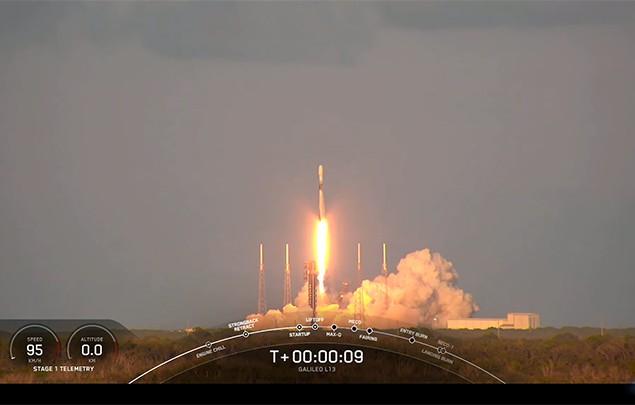Successful Launch of Galileo L13

On September 17, the two satellites of the Galileo L13 mission were placed into MEO (Medium Earth Orbit) on board a Falcon 9 rocket from Cape Canaveral (Florida, United States). This was the 13th launch, and GMV is responsible for the ground control segment that managed the deployment of both satellites.
FM26 and FM32, the two Galileo FOC (Full Operational Capability) satellites, join the 30 satellites launched in different phases under the Galileo program, the European Union's global satellite navigation system, which already serves over 4 billion users. This launch is part of the Full Operational Capability phase of the program's first generation, which consists of a complete system of 30 satellites, control centers, a network of tracking stations, and uplink stations installed worldwide.
GMV deployed this new Galileo Ground Control Segment infrastructure in the centers of Oberpfaffenhofen (Germany) and Fucino (Italy) in August 2021. Currently, the organization is responsible for the evolution and maintenance of this G1G ground segment until 2027. In parallel, it is also developing the ground segment for the in-orbit control and validation (IOV) of the second generation of Galileo (G2G). This new generation will introduce new services and cutting-edge technologies, enhancing those of the first generation. It will also increase the system's precision and robustness, improve security, and reduce maintenance costs.
Since 2023, GMV has been responsible for developing the G2G testbed (G2STB), a key system the European Space Agency is developing to test the proper functioning of the new second-generation Galileo satellite constellation.